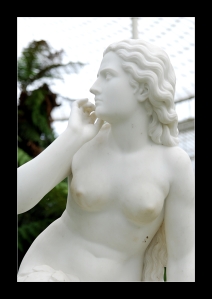
The Scottish Secular Society’s petition calls on the Scottish Parliament to urge the Scottish Government to issue official guidance on the presentation in Scottish publicly funded schools of separate creation and of Young Earth doctrines as viable alternatives to the established science of evolution, common descent, and deep time.
I sincerely hope that the committee members are sufficiently well read on the issues that played out so publicly in the United States, most notably in the Kitzmiller v. Dover Area School District case. Assuming that this is the case, there can be no doubt in your collective minds that separate creation, young earth doctrines and (with regard to Kitzmiller) Intelligent Design (ID) are in no way viable alternatives to the mechanisms science currently proposes.
Separate creationism and young earth doctrines fly in the face of common sense as well as attempting to undermine the entire corpus of human knowledge and our understanding of reality. In simple terms, these views are those of charlatans or simpletons.
You should also be aware that ID is a cynically remarketed version of creationism albeit with the designer remaining unnamed. An often cited quip is that Intelligent Design is “nothing more than creationism in a cheap tuxedo”.
This indeed, was what Judge John Jones III in the Kitzmiller case surmised when he stated that:-
“we conclude that the religious nature of ID would be readily apparent to an objective observer, adult or child. “
“A significant aspect of the IDM [intelligent design movement] is that despite Defendants’ protestations to the contrary, it describes ID as a religious argument. In that vein, the writings of leading ID proponents reveal that the designer postulated by their argument is the God of Christianity.”
“The evidence at trial demonstrates that ID is nothing less than the progeny of creationism.”
“The overwhelming evidence at trial established that ID is a religious view, a mere re-labeling of creationism, and not a scientific theory. “
In his ruling, Jones also found that ID failed on a number of different levels, any one of which would have been sufficient to preclude a determination that ID is science or a viable alternative explanation to current theories.
Firstly, Jones said that ID breaches the fundamental methodological naturalism inherent in the pursuit of science by invoking and permitting supernatural causation. Secondly, that the argument of irreducible complexity, central to ID, employed the same flawed and illogical contrivances that doomed creation science in the 1980s. Thirdly, that ID’s negative attacks on evolution have been extensively refuted by the scientific community.
He also pointed out that ID has failed to gain acceptance in the scientific community, that it had not generated peer-reviewed publications, nor had it been the subject of testing and research.
For my own part, I would add that Intelligent Design (and for that matter separate creation) offers no plausible mechanism as an alternative. Indeed it does not offer ANY mechanism, far less a plausible one. It merely says – this looks designed, therefore it was designed and this implies the existence of a designer. Crucially, Jones found that Intelligent Design amounted to a pretext for the real purpose, which was to promote religion in the public school classroom.
Indeed this is what the Scottish Secular Society also perceives in the various appearances (or possibility thereof) of creationism and ID in the Scottish Classroom.
This petition has been raised of course because the current Cabinet Secretary for Education and Lifelong Learning has consistently refused to commit himself on the matter, stating rather that such decisions be left to the discretion of a Head Teacher. Such a lack of concern and inactivity on the matter beggars belief given the furore which erupted over the issuing of creationist material at Kirktonholme Primary School in East Kilbride. This incident clearly demonstrated that head teachers could NOT be depended upon to prevent such material reaching children. The issue was dealt with quite simply south of the border by Michael Gove MP and there is no rational explanation why Scotland could not have followed suit.
One can only speculate on this refusal to act. Could it be that, despite Kirktonholme, the Cabinet Secretary really believes that the discretion of head teachers is to be trusted or is it that he doesn’t wish to upset religious supporters? Can he really view this as an isolated incident when organisations like C4ID, People With A Mission Ministries (PWAMM) and the increasingly bizarre future Moderator of the Free Church of Scotland, Reverend David Robertson are waiting in the wings to foist these stultifying beliefs upon children?
The views of charlatans or simpletons are bad enough but tacit acceptance of the status quo by government in full knowledge of the potential consequences is intellectually indefensible and a blatant dereliction of duty of care to the nation’s children.
If the Public Petition’s Committee is to retain any credibility it must make very plain to government that it can no longer ignore the elephant in the room. It must have the gumption to speak plainly against such stupidity. It must address this issue now and rule clearly that promotion of religious views as science is unacceptable.

